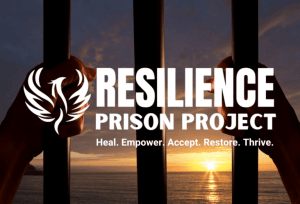Society faces the complex challenge of rehabilitating adults in custody for violent crimes while ensuring public safety. Traditional punitive measures often fail to address the root causes of criminal behavior. However, Nonviolent Communication (NVC), sees a different world. Combined with Heinz Kohut’s argument that many of our undesired behaviors result from empathic failure, it presents a compelling approach to fostering empathy and rehabilitating those who’ve committed violent crimes. At Pathways for LIFE, we believe that NVC is a powerful tool for increasing empathic capacity in prison. It mobilizes adults in custody toward more prosocial approaches to life.
Nonviolent Communication (NVC) Explained
Nonviolent Communication is a communication approach centered on empathetic connection, effective expression of needs, and conflict resolution. NVC recognizes that violent behavior often stems from unmet needs and a lack of empathy. It provides a structured method for individuals to connect with their own and others feelings and needs.
Empathy as a Central Component
At the heart of NVC lies empathy. It is a quality essential for fostering prosocial behavior. Empathy involves the ability to understand and share the feelings and needs of another. When adults in custody repeatedly practice this they are increasing empathic capacity in prison. By teaching those incarcerated for violent crimes to empathize with both themselves and those harmed by their unskilled acts, we address one of the root causes of criminal behavior. This root cause is the inability to recognize and respond to the needs of oneself and others.
NVC’s Four-Step Process
NVC’s four-step process – observation, feeling, need, and request – encourages individuals to communicate their feelings and needs without judgment or blame. For the incarcerated, this structured approach can facilitate self-awareness and accountability. It encourages them to identify the unmet needs that may have led to their criminal actions. This is a crucial step in rehabilitation.
Crime as the Result of Empathic Failure
Dr. Fred Sly PhD and certified NVC Trainer, argues that crime is, at its core, a consequence of empathic failure. He posited that individuals who engage in criminal behavior often lack the capacity to empathize with the people harmed by their actions. Heinz Kohut’s theory about empathic failure aligns with this. NVC’s emphasis on empathy is, therefore, a crucial component of rehabilitation.
Empathic Deficits in Adults in Custody for Violent Crimes
Many people incarcerated have grown up in environments where empathy was lacking. They may have experienced neglect, abuse, or social isolation, (ACEs) which hindered the development of their empathic abilities. As a result, these individuals struggle to understand the emotional experiences of others. This may lead to violence as a means of resolving conflicts.
NVC as a Remedial Tool
By integrating NVC into the rehabilitation process, those incarcerated can learn to repair their empathic deficits. NVC’s focus on understanding feelings and needs fosters self-awareness. It also helps individuals recognize the inner lives of others. As adults in custody for violent crimes engage in empathetic communication, they begin to address the root causes of their criminal behavior. This starts to rewire their brains to respond to conflicts with empathy rather than violence.
The Power of Empathic Rehabilitation
Rehabilitation approaches that emphasize empathy, such as NVC, have the potential to transform those with violent crimes into prosocial, law-abiding citizens. Here are several reasons why empathic rehabilitation is a compelling approach:
-
Reducing Recidivism
Traditional punitive approaches often fail to address the underlying issues that lead to criminal behavior. This results in high rates of recidivism. Empathic rehabilitation, on the other hand, equips individuals with the emotional intelligence and communication skills needed to navigate life’s challenges without resorting to violence. As a result, the likelihood of reoffending decreases significantly.
-
Reintegrating Offenders into Society
The Resilience Prison Project prepares the incarcerated for successful reintegration into society. By teaching them to empathize with others and express their needs nonviolently, these approaches empower them to build healthier relationships, secure employment, and contribute positively to their communities.
-
Restorative Justice
Nonviolent Communication aligns with the principles of restorative justice, which emphasizes repairing the harm caused by criminal behavior rather than simply punishing. NVC encourages them to take responsibility for their actions and make amends. This fosters a sense of accountability and empathy toward those harmed by their actions.
-
Long-Term Social Benefits
Society as a whole benefits from empathic rehabilitation programs. By helping adults in custody for violent crimes literally rewire their brains toward prosocial behavior, we reduce the cycle of violence and crime in our communities. This leads to safer neighborhoods, lower incarceration costs, and a more compassionate and just society.
Final Thoughts
Nonviolent Communication (NVC) offers a compelling method to assist adults in custody to build neuropathways toward more prosocial and rehabilitated approaches to life. When combined with Dr. Fred Sly’s argument that crime results from empathic failure, NVC may be recognized a powerful tool for addressing the root causes of criminal behavior.
Empathy, at the core of NVC, is a transformative force that can help adults in custody for violent crimes recognize and meet their unmet needs while fostering understanding and compassion for the needs of others. By following NVC’s structured approach to communication, they can develop emotional intelligence. This is increasing empathic capacity in prison which is necessary for successful reintegration it is also reducing recidivism rates and promoting the principles of restorative justice.
Embracing our approach is not only a path to individual transformation but also a step toward creating safer, more compassionate communities. By investing in programs that prioritize empathy, we can help adults in custody for violent crimes rewrite their life stories, ultimately leading to a more just and harmonious society.









